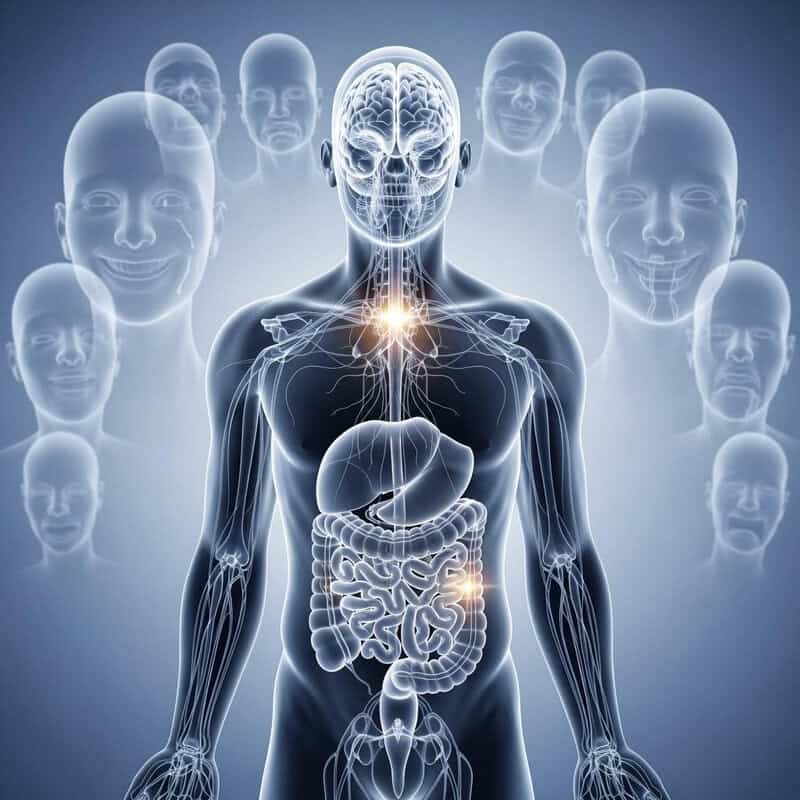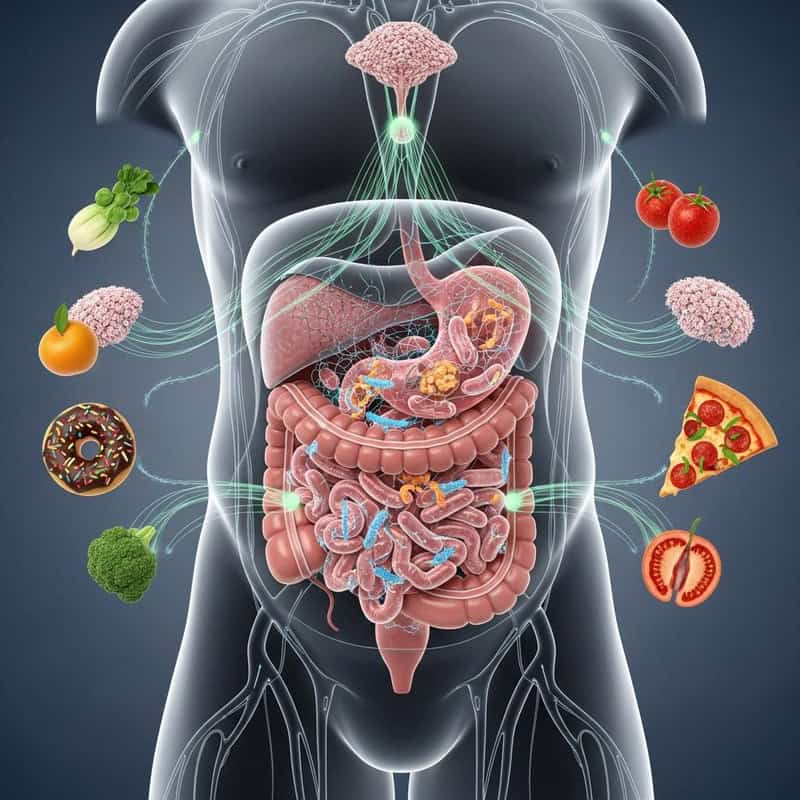Gut health is rapidly emerging as a cornerstone of overall well-being, influencing far more than just digestion. Research reveals that the trillions of microbes in our digestive tract play a crucial role in immune function, mood regulation, and even weight control. In this guide, you’ll discover how the gut microbiome impacts your physical and mental health, the mechanisms behind these effects, and actionable tips to support your digestive system.

Why Gut Health Affects Everything from Mood to Weight
The Gut-Brain Connection

The gut-brain axis is a complex communication network linking the digestive system and the brain through neural, hormonal, and immune pathways. This link means that gut health can directly impact mood, stress levels, and cognitive performance.
Signs of an imbalanced gut-brain connection may include persistent digestive issues, anxiety, or trouble concentrating. Recognizing these symptoms is crucial for early intervention and maintaining mental wellness. For a deeper dive into how the gut and brain interact, explore the American Psychological Association’s overview of the gut-brain relationship.
The Gut’s Role in Weight Management

Your gut microbiome influences metabolism, appetite regulation, and fat storage, making it a central player in weight management. An imbalance in gut bacteria can disrupt hormones that control hunger and fullness, leading to cravings or overeating.
Paying attention to how your body responds to different foods—such as bloating, sluggishness, or fluctuating weight—can offer clues about your gut health. Maintaining a balanced microbiome supports efficient calorie processing and weight stability. To learn more, read this review from the National Institutes of Health on gut microbiota and weight regulation.
Signs of Poor Gut Health

Common indicators of poor gut health include digestive discomfort (bloating, gas, constipation, or diarrhea), unexplained fatigue, frequent illnesses, and even skin issues like eczema or acne. These symptoms often signal an imbalance in your gut microbiome.
For self-assessment, track any recurring digestive problems and note other changes in energy or skin condition. Early recognition allows for timely changes to improve gut health. For a comprehensive list of symptoms and guidance, visit the Cleveland Clinic’s guide to gut health warning signs.
Improve Your Diet for a Healthier Gut

Supporting your gut starts with mindful dietary choices. Incorporate fiber-rich foods such as fruits, vegetables, and whole grains, which nourish beneficial bacteria. Add fermented products like yogurt, kefir, kimchi, and sauerkraut for natural probiotics.
Prebiotics—found in foods like garlic, onions, and bananas—further promote a thriving microbiome. These food choices encourage microbial diversity, crucial for digestive and overall health. Small, consistent changes in your diet can have a ripple effect on well-being. For more detailed dietary guidance, check out the Healthline guide to gut health foods.
Manage Stress to Support Gut Health

Chronic stress can disrupt the gut-brain axis and negatively impact your microbiome. Practicing mindfulness techniques, such as meditation or deep breathing, helps reduce stress hormones that harm gut health. Regular physical activity and prioritizing adequate sleep also contribute to a balanced nervous system and resilient gut.
Integrate these habits gradually—start with a daily walk, a short meditation session, or a consistent bedtime routine. These manageable changes protect both your mental and digestive well-being. For more strategies, visit the Mindbodygreen guide on stress and gut health.
Evaluate Lifestyle Habits That Affect the Microbiome

Your daily habits have a significant impact on gut flora. Overuse of antibiotics, excessive alcohol intake, and a sedentary lifestyle can disrupt microbial balance. Evaluate your routines by tracking medication use, monitoring alcohol consumption, and prioritizing regular exercise.
Making mindful adjustments—such as only using antibiotics when necessary, limiting alcohol, and staying active—can help restore and maintain a healthy microbiome. These choices support not only gut health but your overall well-being. For further insight, read this resource on lifestyle factors influencing gut bacteria from Medical News Today.
Consider Probiotics and Supplements Carefully

Probiotics and gut health supplements can offer benefits by introducing beneficial bacteria and supporting microbial diversity. However, their effectiveness varies by strain and individual needs, and not all products are evidence-based.
When considering supplements, select reputable brands with transparent labeling and clinical research backing. Always consult a healthcare professional before starting any new supplement, especially if you have underlying conditions or take medications. For a science-based overview of probiotics, visit the Mayo Clinic’s guide to probiotics.
Conclusion

Understanding and prioritizing gut health is essential for both mental and physical well-being, influencing everything from mood to weight management. By recognizing the signs of imbalance, making mindful lifestyle choices, and adopting gut-friendly habits, you can support a healthier, more resilient body and mind.
Remember, small changes in diet, stress management, and daily routines can make a significant impact. Stay informed and consult professionals when considering supplements or major lifestyle shifts. For continued guidance and the latest research, explore resources like the Nature Reviews Gastroenterology & Hepatology.
